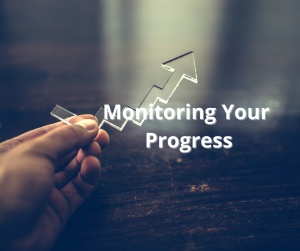Are you eager to embark on the journey of learning Arabic but unsure where to start? Learning a new language can be both exciting and daunting, but with the right approach, you can efficiently master the Arabic language. In this article, we’ll explore practical strategies and tips to help you learn Arabic efficiently, making your language learning journey smooth and rewarding.
Setting Clear Goals
Before diving into Arabic learning, it’s essential to define your goals. Whether you aim to achieve conversational fluency, enhance your career prospects, or connect with Arabic-speaking communities, setting clear and achievable goals provides direction and motivation for your language learning journey.

Choosing the Right Learning Materials
Selecting high-quality learning materials tailored to your learning style is crucial for efficient language acquisition. Whether it’s textbooks, online courses, or language learning apps, choose resources that align with your goals and preferences to optimize your learning experience.
Practicing Regularly
Consistent practice is key to mastering any language, including Arabic. Set aside dedicated time each day to practice reading, writing, listening, and speaking in Arabic. Even short, daily practice sessions can yield significant progress over time.
Utilizing Language Learning Apps
Language learning apps offer a convenient and interactive way to practice Arabic anytime, anywhere. With features like vocabulary drills, grammar exercises, and interactive lessons, applications can supplement your learning efforts effectively.
Engaging with Native Speakers
Interacting with native Arabic speakers provides valuable exposure to authentic language usage and cultural nuances. Seek out opportunities to converse with native speakers through language exchange programs, online forums, or local Arabic-speaking communities.
Joining Language Exchange Programs
Language exchange programs pair language learners with native speakers for mutual language practice. Platforms and Conversation Exchange connect learners worldwide, enabling you to practice Arabic while helping others learn your native language.
Immersing Yourself in Arabic Culture
Immerse yourself in Arabic culture through music, films, literature, and cuisine. Exposure to authentic cultural artifacts enhances your language learning experience and deepens your understanding of Arabic-speaking societies.

Creating a Study Routine
Establishing a consistent study routine helps you stay organized and committed to your language learning goals. Designate specific times and locations for studying Arabic, and stick to your schedule to maintain momentum and discipline.
Seeking Feedback and Correction
Seek feedback from teachers, language exchange partners, or online communities to identify areas for improvement and receive constructive criticism. Embrace feedback as an opportunity for growth and refinement in your Arabic language skills.
Staying Persistent and Patient
Language learning is a journey filled with ups and downs, so it’s essential to stay persistent and patient throughout the process. Celebrate your progress, stay motivated, and embrace challenges as opportunities for learning and growth.

Monitoring Your Progress
Regularly assess your language learning progress by tracking vocabulary acquisition, language proficiency levels, and communication skills. Reflect on your achievements and areas for improvement, adjusting your learning strategies accordingly.
Conclusion
Learning Arabic efficiently requires dedication, persistence, and effective learning strategies. By setting clear goals, utilizing the right resources, practicing regularly, and immersing yourself in Arabic language and culture, you can embark on a fulfilling language learning journey and achieve your desired level of proficiency.




